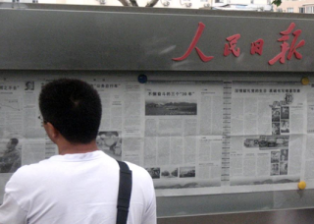The Transparency of Chinese Aid: An Analysis of The Published Information on Chinese External Financial Flows is a newly released report that examines the information that is currently available on Chinese assistance to developing countries. Co-published by Publish What You Fund and the Centre for Chinese Studies at Stellenbosch University, the report outlines how Chinese aid reporting differs from Western methods and assesses the prospects for improving the transparency of China's foreign assistance.
Lead author Sven Grimm and a team of co-authors explore the fragmented state of Chinese aid information by cataloguing the materials published by each Chinese government entity involved with foreign aid. In April 2011, the State Council, China’s highest executive body, published China’s Foreign Aid, an official white paper that provides aggregate figures on China’s foreign aid as well as data on aid distribution by industry, region, and level of income. However, the white paper does not disclose records for individual recipient countries or projects. Other data on grants and interest-free loans are available through The China Statistical Yearbook (Almanac of China’ s Foreign Economic Relations and Trade; 中国对外经济贸易年间), and China Eximbank annual reports are accessible on the Eximbank’s website. But neither of these contain country-level data. Patchy information is available through press releases, policy speeches and news reports, but as Grimm and his colleagues point out, such sources are only small pieces of China’s intricate aid puzzle. Moreover, no data are publicly available about success rates for any of China’s aid projects, and there are few if any project evaluations, audits and assessments in the public domain. It is therefore not entirely surprising that Chinese Vice Minister of Commerce Fu Ziying recently reported, “China has not found a single case of corruption in its aid projects to foreign countries during the past six decades.”

China’s activities as a donor country confound the existing set of global aid reporting standards. Whereas Chinese aid figures include military assistance and subsidized loans for joint-venture projects, OECD-DACcalculations do not include these contributions. And while DAC members report things such as debt relief and costs of foreign students studying in donor countries, China does not. One must also remember that Chinese notions of "aid" are borne out of cultural, political and economic institutions different from those that form Western aid paradigms. Deborah Bräutigam's insightful book, The Dragon’s Gift, addresses this issue at some length.Despite these measurement challenges, Grimm and his coauthors suggest that more data on Chinese aid are available than many perceive, and that Chinese officials may have incentives to make their aid more transparent and consistent with Western aid practices. They also acknowledge several possible impediments to transparency, including domestic criticism of foreign aid and resistance towards Western pressure for conformity with traditional international aid norms.
Ultimately, the authors of this report strike a cautiously optimistic tone. They note that China has stepped up its engagement with the OECD-DAC, the World Bank, and other members of the international aid community. They also suggest that the upcoming Fourth High-Level Forum on Aid Effectiveness (HLF-4) in Busan, South Korea will raise the profile of South-South cooperation and focus attention on Chinese assistance. As many readers of The First Tranche know, AidData collected and published one of the only publicly available project-level datasets of Chinese aid, and we are eager to expand and enhance the data. Stay tuned to The First Tranche for updates.
